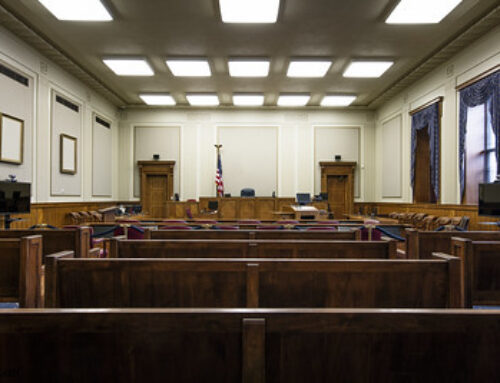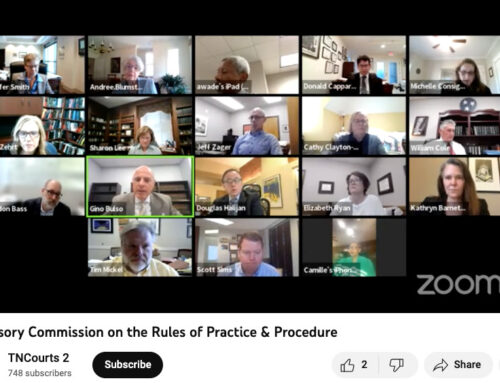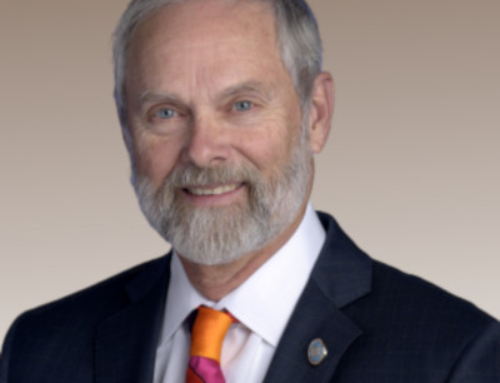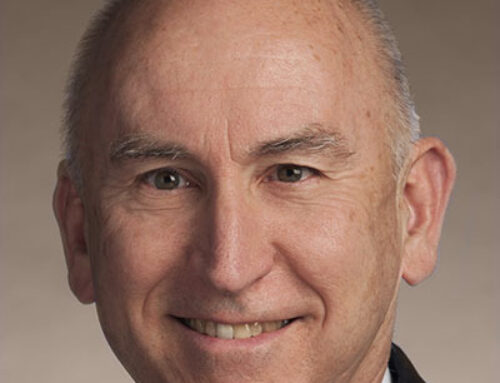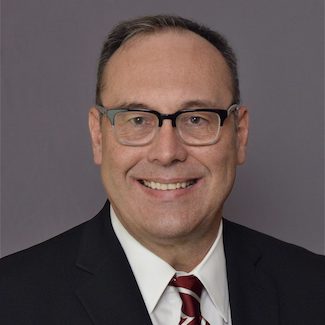
Buck Dougherty with the Liberty Justice Center represented The Center Square in its lawsuit to open meetings of a rules advisory committee on Tennessee court rules.
A federal district judge ruled last week that members of the public and the press likely have a First Amendment right of access to meetings of a Tennessee advisory commission that recommends practice and procedure rules for Tennessee courts.
In a preliminary injunction, U.S. District Judge Eli Richardson ordered that the meetings be opened or livestreamed so that the public could view them.
The Liberty Justice Center filed the lawsuit on behalf of Dan McCaleb, executive editor of The Center Square, after the Administrative Office of the Courts established a blanket closure policy for judicial conference meetings hosted by the administrative office. The Center Square reports on state and local government in several states. Buck Dougherty, senior attorney for the Liberty Justice Center, represented the news organization.
The case zoned in on the Advisory Commission on the Rules of Practice & Procedure, which held a meeting on Sept. 9, 2022, that was closed to the public and the press.
‘Experience and logic’ test applied to court rules commission
U.S. District Judge Eli Richardson applied the “experience and logic” test to determine whether a First Amendment right of access would exist for the meetings, noting that the 6th U.S. Circuit Court of Appeals has applied the test to non-adversarial court proceedings as well as criminal proceedings.
The “experience and logic” test derives from a U.S. Supreme Court ruling and examines whether the court proceeding has been historically open to the press and the general public, and whether the public plays a significant positive role in the functioning of the particular process in question.
In examining the “experience” prong, Richardson observed that the federal analogue to Tennessee’s Advisory Commission is the U.S. Judicial Conference’s Committee on Rules and Practice and Procedures, which has held open hearings on rule changes for 40 years. He said this creates “a sufficient tradition of presumptive public access to the rules advisory committee meetings at the federal level.” He also observed that a federal statute allows the meetings to be closed “if a reason is given.”
Opening meetings would create better rules, transparency, federal judge says
In examining the “logic” prong, Richardson said that the rules of practice and procedure “are quite important for accessing justice, and thus public participation is helpful, particularly considering that these rules are not created by the legislature.”
“Rules of criminal procedure are of especially great consequence in the administration of justice.”
“Opening rules advisory committee meetings, whether at the federal or state levels, not only creates transparency and public confidence, it likely creates better rules,” Richardson said.
First Amendment right of access applies to rule meetings, judge says
Because the First Amendment right of access to federal rules advisory committee meetings is incorporated as a right under the 14th Amendment applying to states, “it stands to reason that the analogous state rules advisory committee meetings are subject to the same constitutional requirements.”
“Therefore, Plaintiff’s likelihood of success in establishing a right of access to federal rules advisory committee meetings also leads to the likelihood of success in establishing a right of access (to) to Tennessee Advisory Commission meetings.”
In ordering the meetings open, Richardson said that it would not be overly burdensome for the Administrative Office of the Courts to livestream a meeting, and that any potential burden would be outweighed by the press’s First Amendment rights and ability to report on the proceedings.
He also said that the public interest “lies with opening these meetings, not only to prevent the First Amendment violation” but also because of the logic of the benefit played by the public in the creation of better rules.
Richardson said that the meetings may be closed on a “case-specific basis based on a particular stated reason that purportedly justifies such closure.” However, he said, “any such disclosure is separately subject to challenge in its own right.”

